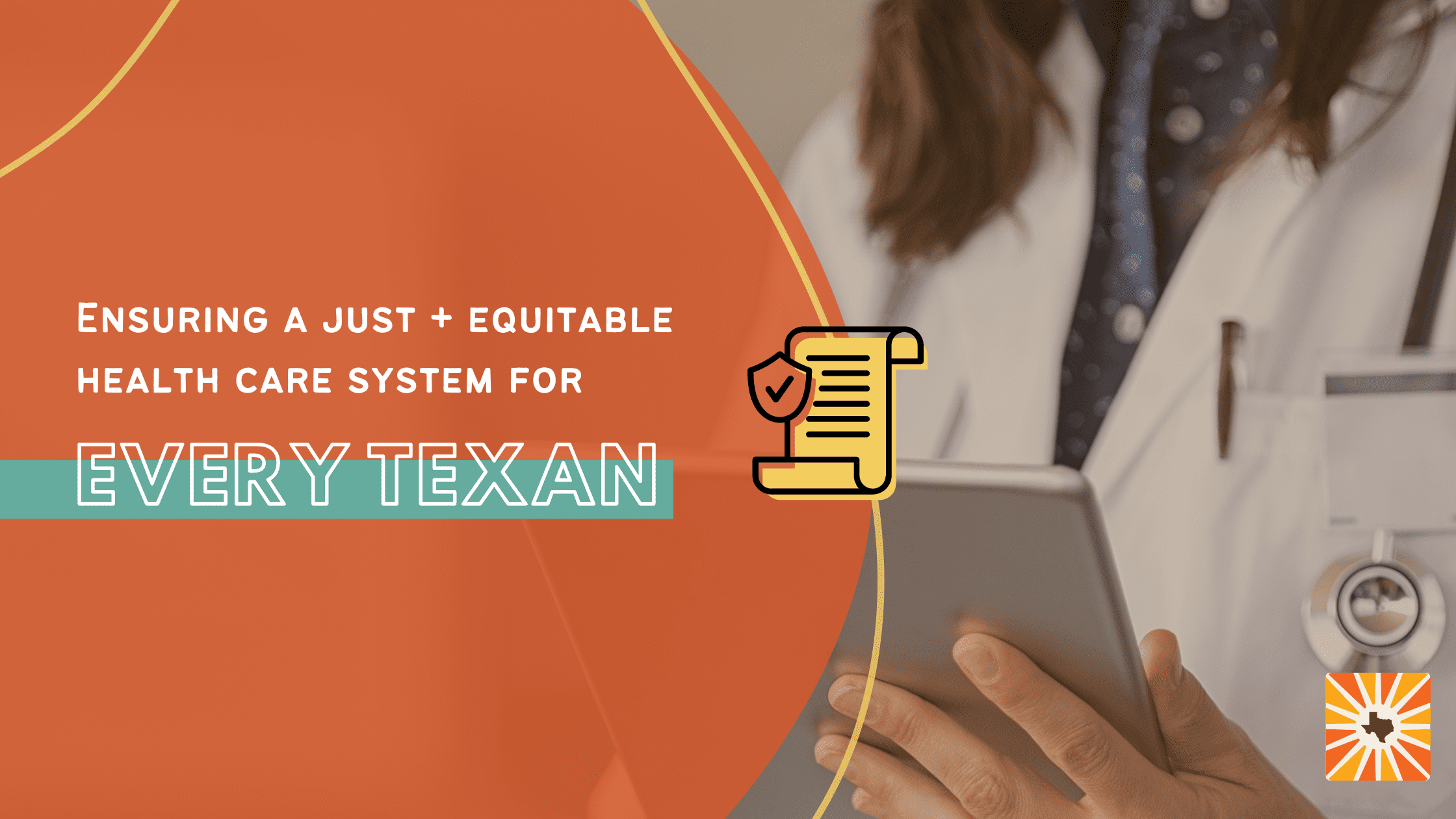First Data Shows Alarming Impact of Medicaid Unwinding in Texas
Governor Abbott can take steps to keep eligible Texans covered
Over half a million Texans were removed from Medicaid health coverage in June, according to new data released by the Texas Health and Human Service Commission (HHSC).
For the past three years, under COVID-19 emergency rules, anyone enrolled in Medicaid could keep their coverage regardless of whether they still meet eligibility requirements. Now, Texas HHSC is reviewing eligibility for millions of Texans, and the first data released indicate that the state’s Medicaid “unwinding” of pandemic continuous coverage is likely disenrolling many eligible Texans.
The process is an enormous undertaking, unprecedented in scale for our state’s eligibility and enrollment system. Even before the increased workload from renewals, Texas HHSC experienced big delays in processing Medicaid applications and renewals, starting in 2021 and persisting through the beginning of unwinding. The shortage of eligibility workers and backlogs of Medicaid and SNAP paperwork have persisted for more than a year. HHSC has worked hard to fill eligibility worker vacancies and has leveraged temporary federal flexibilities to reduce the workload, increased outreach to clients, and equipped Medicaid health plans to help clients renew, and these efforts have brought improvements. Still, these first numbers on “unwinding”, as well as state reports on new Medicaid applications, show that much more effort and more powerful tools are needed.
This initial data from HHSC is limited and does not show how many of those who lost coverage were children, low-income seniors, or individuals with disabilities. All of these groups are likely to remain eligible for Medicaid, yet are at risk of losing their coverage due to bureaucratic hurdles.
We are alarmed that the 81% of over 500,000 Texans removed from Medicaid in June was not due to ineligibility. Rather, they lost coverage due to “procedural” red tape. This includes things like Medicaid sending their paperwork to an old address, confusing paperwork with multiple deadlines or not in the family’s language, or the family not completing all required steps. A major factor in this high procedural cut-off rate is that HHSC renewed coverage using data-driven tools (also known as “administrative” or “ex parte” renewal) for less than 1% of the more than 785,000 Texas Medicaid enrollees notified in April they needed to renew. In comparison, Arizona reports 62% of their first round of unwinding renewals were successfully completed administratively.
Every Texan urges the Governor to “hit pause” on Medicaid disenrollments until the state adopts a strong program of available federal flexibilities to reduce red tape denials. While HHSC administers Medicaid, it is only with approval from the Governor’s office that the agency can adopt new flexibilities. Until it can be shown that the additional flexibilities are reducing red-tape denials and speeding up successful renewals, sticking to the current self-imposed timeline will only create additional delays in the overwhelmed eligibility system.
Beyond the recommended pause, Texas has the option to immediately extend coverage for 30 days for anyone who’ll be subject to a red tape denial, as long as the state does targeted outreach to these individuals during that time. Texas should elect this available option and others to protect coverage for eligible Texans. In order to make that option effective, HHSC will also need to empower a full range of qualified partner organizations – including health plans, health centers, and community partners – to complete renewals for Medicaid clients so that half-finished cases don’t simply add to backlogs.
About Every Texan
Every Texan believes that social justice requires public policy. Since its founding in 1985, Every Texan (formerly the Center for Public Policy Priorities) has leveraged public policy to expand opportunity and equity for Texans of all backgrounds. Every Texan is an independent nonprofit organization that researches, analyzes, and advocates for public policies to achieve equitable access to quality health care, food security, education, and good jobs. Our bold, research-driven legislative priorities dare Texas leaders to make Texas the best state for hard-working people and their families. Learn more at everytexan.org.
